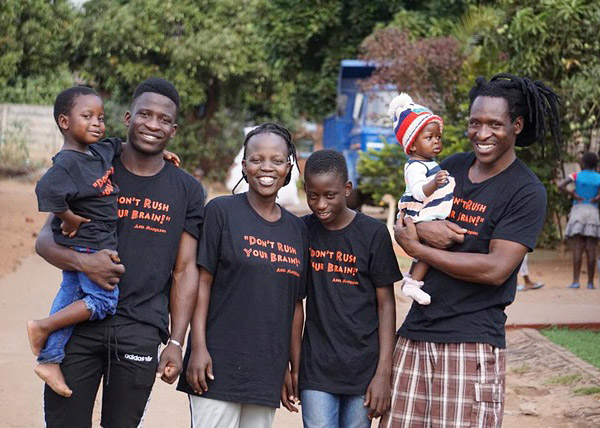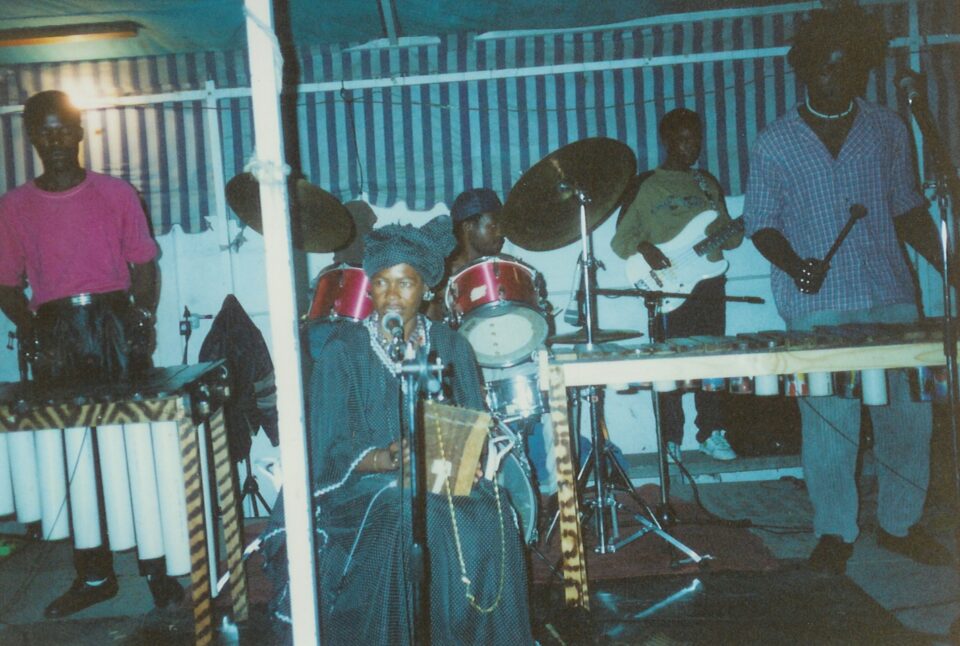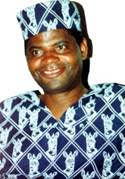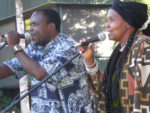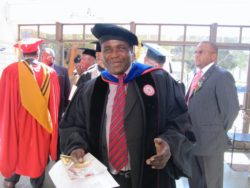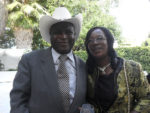By Dana Moffett. Posted by Claire Jones on behalf of the Organizing Committee and ZA Board.
Dear Friends of the Mafuleni Family,
I hope this email finds you in good health and spirits. Today, I write to you with a heavy heart, as our dear friend Jacob Mafuleni is going through an unimaginable tragedy. As you may have heard, Jacob has lost three family members, including his beloved wife Martha Thom Mafuleni, in a tragic road accident in Zimbabwe, leaving him devastated and in desperate need of our support.
This tragedy has not only taken away his mother Gogo Mafuleni, his brother Zondiwa Mafuleni, but also a remarkable woman who was the heart and soul of their family and community. Jacob’s sister-in-law, sister, and niece are hospitalized. Our community has fully supported school fees and family support for their children Abel, Jacob Jr, Byron, and Tinotenda. This is another way to help out our beloved family during this devastating time.
Martha, Jacob’s wife, was an exceptional dancer, a dedicated teacher, and an invaluable pillar of the music and dance community both in Zimbabwe and here in the United States. Her passion for dance was contagious, and she touched the lives of countless students, inspiring them to embrace the art form and pursue their dreams. Through her teaching, Martha nurtured a new generation of talented dancers, leaving a lasting impact on her Dzivarasekwa community’s cultural landscape.
Beyond her role as a dance teacher, Martha was a beacon of strength and compassion. She always lent a helping hand to those in need and radiated warmth that made everyone feel welcomed and cared for. Her contributions to the community went far beyond the dance floor and performance stage, as she selflessly dedicated herself to various charitable initiatives and events, enriching the lives of those around her.
In the face of this heartbreaking loss, we have set up a GoFundMe campaign through Matanho Project to help our dear friend Jacob in this trying time and to honor Martha’s memory. The funds raised will not only support him with immediate expenses but also serve as a tribute to the legacy of a remarkable woman who touched so many lives. Your contribution, no matter how big or small, will make a significant difference in Jacob’s life and ensure that Martha’s impact on our community is remembered and celebrated.
Here’s how you can help:
1. Donate: Every dollar counts, and your donation will directly impact Jacob’s life. https://gofund.me/9206e6bf
2. Share: Even if you are unable to donate at this time, you can still make a difference. Share the GoFundMe campaign with your family, and friends, and on social media to reach a broader audience who may be willing to lend their support.
Let us stand united in this moment of darkness, celebrating the life of a woman who brightened our lives, and be a beacon of hope for our friend in need. Together, we can ease his burden and ensure that Martha’s legacy lives on in the hearts of those she touched.
If you have any questions or need further information, please don’t hesitate to reach out to me directly.
Thank you for your compassion, generosity, and solidarity in this time of grief. Let’s surround Jacob with love and support as he navigates through this painful chapter of his life and cherishes the memory of his beloved Martha.
With heartfelt gratitude,
Dana Moffett
